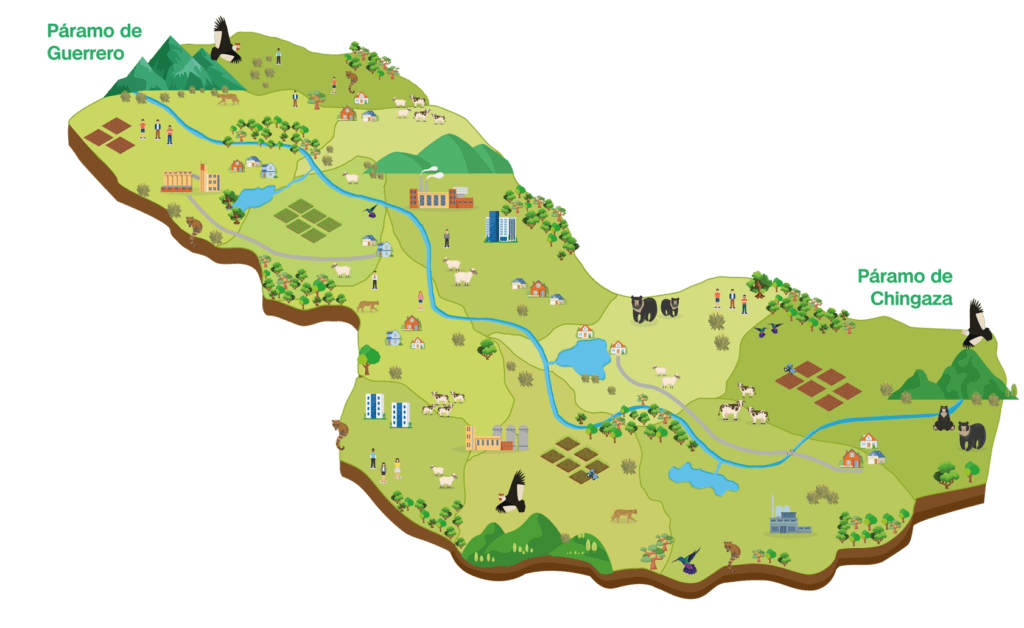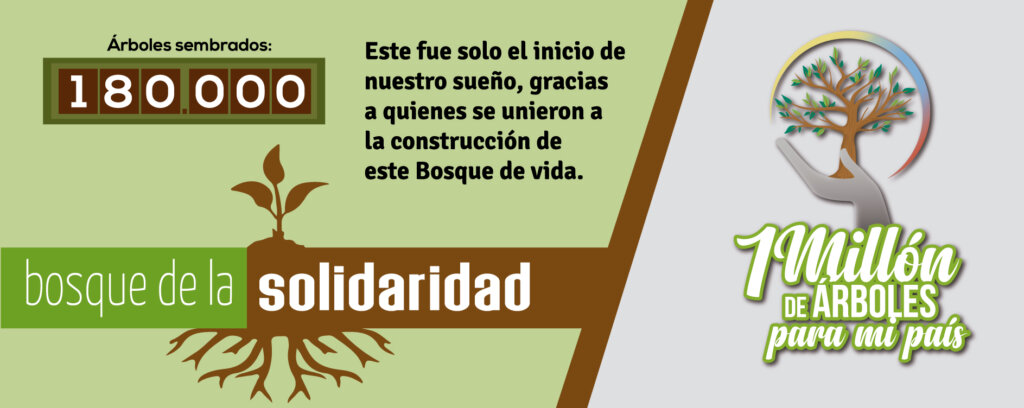Never in the history of mankind has the relationship between the health of nature and human health been so evident. Two fundamental concepts have been born from this relationship to guarantee the future of the planet. Ecohealth, which refers to the study of how to improve the environment and people’s quality of life; how caring for ecology affects human health and how not taking care of the environment affects us and can cause multiple diseases. The second fundamental concept is that of Biodivercities: sustainable cities based on the health of their ecosystems and the people who inhabit them. It seeks to improve the connection of citizens with their main ecological structure, with the purpose of promoting the conservation and sustainable use of biodiversity.
Convinced that the role of institutions and communities must be closely committed to conservation, we decided many years ago that our environmental mission should be oriented towards the protection, restoration, and promotion of sustainability through the figure of Nature Reserves. Some of our own, others donated or on loan, the reserves constitute our greatest contribution to the care of the Common Home of which Pope Francis speaks.
Our nurseries germinate seeds of hope every day and the plants become the main tool so that the reserves that we take care of and restore stop being green islands and become pieces of a great puzzle, which over time allow uniting wills , communities, industries, universities, educational institutions and all those who wish to work towards the construction of a sustainable landscape and the formation of an ecological and social network in this land of the condor without condors, in this land of bears with few bears, in this wetland savannah is almost without wetlands.
This puzzle that wants to follow the capricious course of the Teusaca and Bogotá rivers, today has few pieces; one in Guasca on the border with the Páramo de Chingaza, a few in the Páramo de Guerrero, others in some spaces that have been conquered by the plants of our Trees for My Country program and the most important, our reserves of the Jaime Duque Park. The great challenge is to start adding pieces to assemble the most complex and difficult puzzle we have ever faced. This is a challenge for people who have the will to make things happen, a challenge for people who do not limit themselves to criticizing and blaming others for what happens, but decide to act and build this sustainable landscape for those who come. behind us.

It is not only about carrying out an ecological restoration exercise that aims to return the territories to some condition in which they were in the past, but about building sustainable landscapes together through regeneration processes that allow us to reconcile with the planet. , that encourage us to repair what has been destroyed by human activities, to mitigate the consequences of climate change and to actively restore the conditions conducive to life.
This project is a voluntary citizen participation exercise, in which the parties give their support to the plan to create an Ecological and Social Network in the Sabana de Bogotá and acquire specific commitments to contribute to the fulfillment of the proposed objectives.
The general objectives of this project are:
- Participatory ecological restoration to increase the capture of CO2 emissions.
- Recovery of biodiversity.
- Circular waste management.
- Water care.
Árboles para mi país is a tool of the Jaime Duque Park Foundation, through which thousands of native plants are produced to contribute to the construction of sustainable landscapes in the Sabana de Bogotá, especially in the corridors between the Páramo de Chingaza and the Guerrero Páramo.

Trees are the main allies of Ecohealth and BiodiverCities. The planet urgently needs trees that guarantee the production of oxygen and maintain, through their multiple properties, the provision of environmental quality for the survival of all species. A tree absorbs approximately between 10 and 30 kg of CO2 per year, 5 to 10 kg of environmental pollutants that affect air quality, and 22 trees are required to meet the oxygen demand of one person per day.
To date, the program has planted 218,000 plants within the Jaime Duque Park Reserves and 19,000 in other spaces within the Chingaza Guerrero Corridor for a total of 237,000 until the year 2023.

